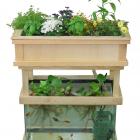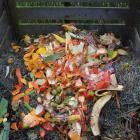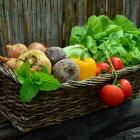With the first substantial snowfall in Montreal last week and temperatures dropping below zero, you might have cranked up the heating at home. In 2009, Canadians spent $26.8 billion on household energy needs, and almost two thirds of this energy was used for space heating. Nearly half of Canadian households used natural gas as their main heating fuel in 2007, emitting not only warmth but also greenhouse gases. Whether it be natural gas, electricity, wood, heating oil or propane, there are a number of ways to prepare your home for winter and to reduce your energy needs. Take a look at these ten handy tips on how to efficiently heat your home and effectively help save both the planet and your pennies (or cents).
1. Install and set a programmable thermostat










